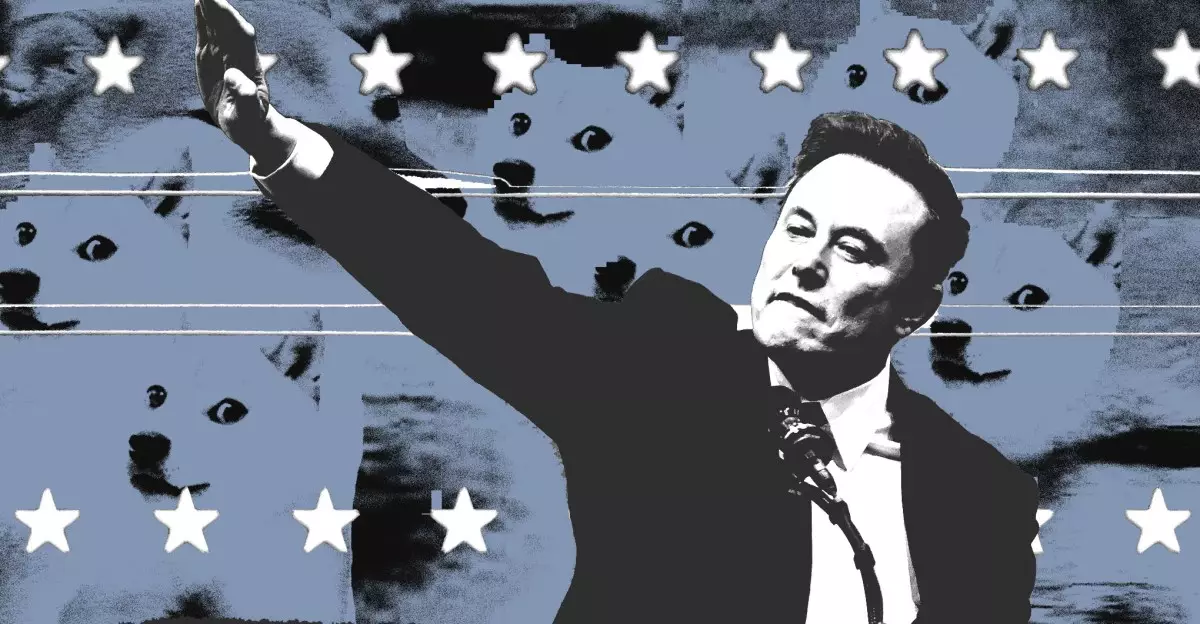In recent years, the intersection of politics and social media has become a battleground for extremist ideologies. The case of Marko Elez, a young staffer at the Department of Government Efficiency (DOGE), serves as a stark example of how such ideologies can infiltrate government positions. Elez’s resignation following the discovery of his inflammatory online activity raises critical questions about the future of political personnel and the ideologies they espouse.
Marko Elez, a 25-year-old who once served in various prestigious positions—most notably at SpaceX and under Elon Musk—found himself embroiled in controversy after the Wall Street Journal revealed his old social media account. Through this account, Elez expressed views that aligned with white supremacism and advocated for “eugenic immigration policy,” suggesting a frightening desire to engineer societal outcomes through exclusionary practices. His posts, claiming that Indian H-1B visa holders would soon be replaced by AI, reflect a dangerous trend within the tech-right that seeks both to undermine immigrant contributions and underpin a larger narrative of racial superiority.
Elez’s previous handle, @marko_elez, was not merely a vessel for personal expression but a grandstand from which he spouted vitriol. Calls for repealing the Civil Rights Act exemplify his radical views, which align disturbingly well with a growing faction within certain political circles that challenges decades of civil rights progress.
The emergence of the DOGE, an initiative reportedly aimed at streamlining the federal government, has recently become intertwined with extreme right ideologies, often masking itself as a crusade against government waste and inefficiency. Far from being a neutral bureaucracy, DOGE shows a blatant disregard for diversity, equity, and inclusion programs—referring to them as “woke” agendas that need to be eradicated. This aligns with broader strategies adopted by factions within the government that have shown a willingness to either hire those with extremist views or protect them despite their radical pasts.
Elez was part of the young, ambitious cohort tasked with carrying out Musk’s vision for a more streamlined government. However, the ideological makeup of this group warrants scrutiny. Those in positions of power should ideally reflect the values of the society they serve, but their actions suggest a prioritization of exclusion over inclusivity. Such attitudes, outlined through the justification of their policies, create a treacherous landscape devoid of empathy or cooperation among diverse groups.
The implications of Elez’s views extend far beyond a mere individual failure. His resignation is reminiscent of a greater pattern in recent politics where far-right perspectives have increasingly found a home within governmental structures. The hiring practices of organizations like the Trump administration, which have included veterans of white nationalist events and advocates for dismantling civil rights, underline a systemic turn towards extremist views. Notably, the case of Darren Beattie, another figure associated with right-wing extremism, demonstrates a troubling trend of normalizing these ideologies within governmental leadership.
Elez’s case illuminates an alarming trend, as it emphasizes how social media culture has become deeply intertwined with political discourse. Young conservative figures—termed “groyperfication” by writer John Ganz—reference increasingly radical online circles where eugenics and white supremacy are discussed openly. The mingling of social media platforms with political candidacy serves to promote a narrative that promotes division rather than unity.
Marko Elez’s story serves as a cautionary tale about the ideologies of youth gaining footholds in government. As the lines between personal beliefs and public responsibilities blur, vigilance is essential to ensure that those in power reflect the diversity and complexity of society rather than regress toward exclusionary and archaic ideologies. The political landscape must remain diligent in rejecting the allure of radicalism and promoting a vision of inclusion that resonates with the foundational principles of democracy. Only through accountability can we hope to prevent the normalization of hate within our institutions.

